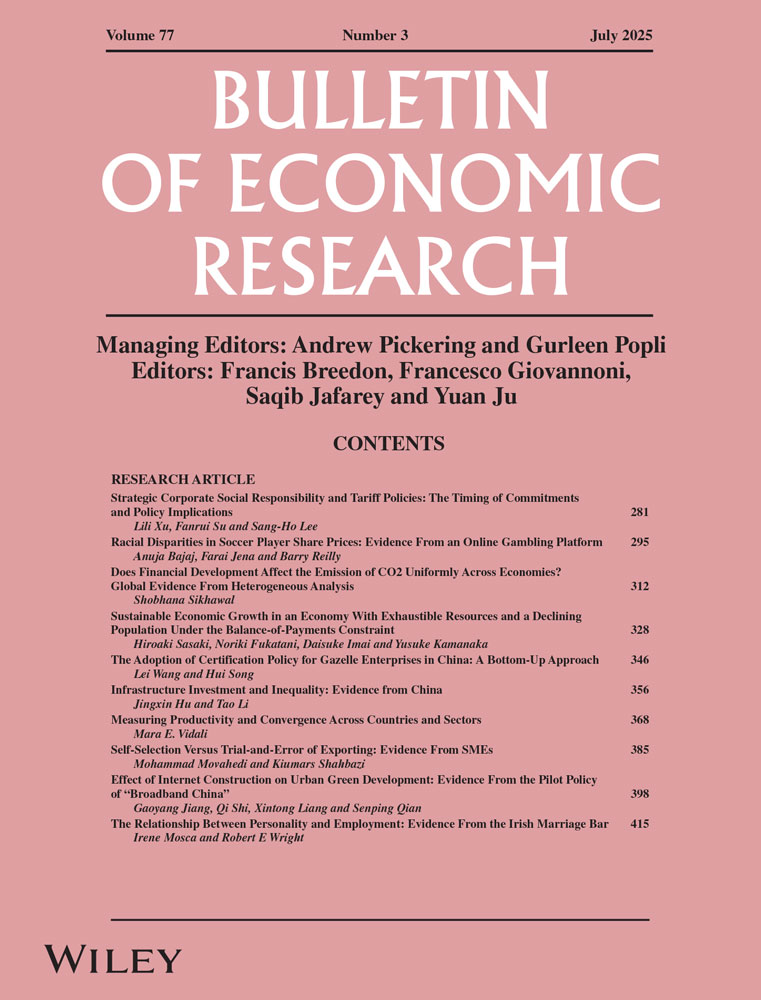UNCERTAIN INCOME, UNCERTAIN TAXES AND RICARDIAN EQUIVALENCE*
The author is grateful to Robert Alexander, Ajit Dasgupta, Bill Guilford, Dorian Owen and two anonymous referees for their help with this paper.
ABSTRACT
L. K. C. Chan (1983) and R. B. Barsky et al. (1986) have demonstrated that a tax cut financed by bonds to be repaid from proportional income taxes on uncertain future income, by reducing the latter's riskiness, stimulates current consumption - Ricardian equivalence does not hold. However, their two-period models exclude the possibility that future taxes are uncertain. In this paper a three-period model is developed that, by allowing the government two periods in which to collect taxes, introduces ex ante tax rate uncertainty. This renders the result concerning Ricardian equivalence ambiguous. By comparison, taxes levied as lump sums and via a ‘lottery’ respectively produce the ‘usual’ effects (zero and negative) on consumption.




